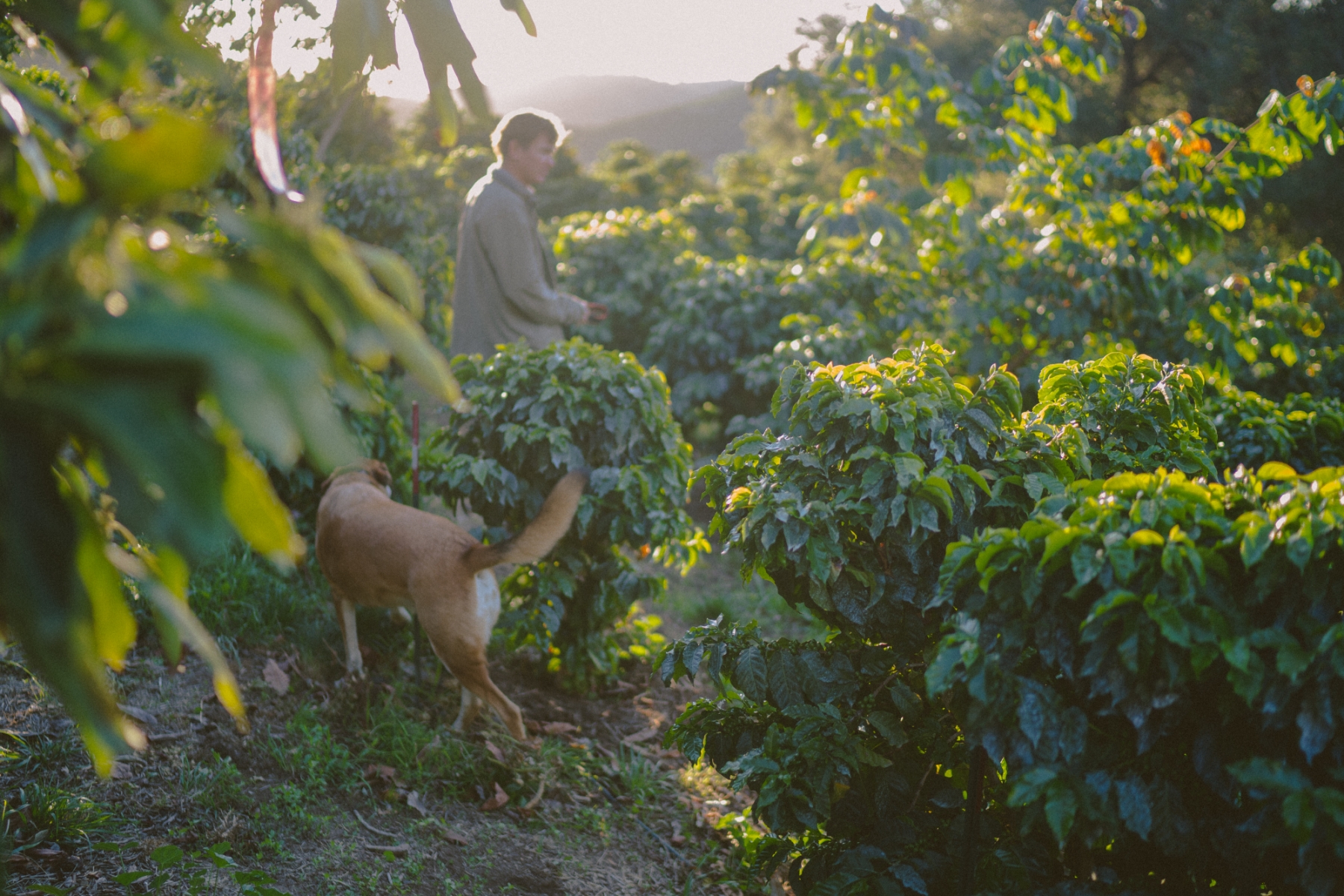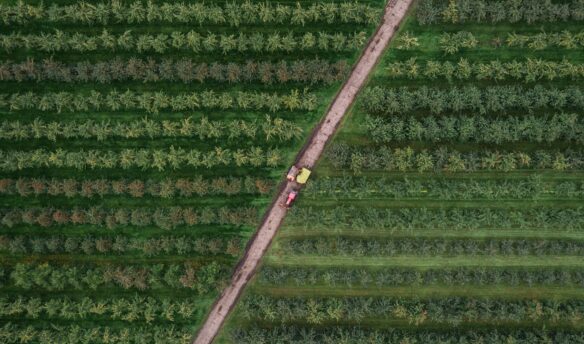A new resource compiles global coffee sustainability projects. Plus, a project in Colombia aims to provide mental healthcare to women coffee farmers, and Uganda overtakes Ethiopia as Africa’s largest coffee exporter.
‘New Initiative Prioritises Mental Health Care for Women Coffee Farmers’ – via Global Coffee Report
After a successful trial, the nonprofit SANA has launched a project to provide integrative psychosocial teletherapy sessions, as well as education and community support, for women coffee farmers in Colombia.
As Daniel Woods writes for Global Coffee Report, the idea for SANA arose while founder Lucia Bawot was working on her book, “We Belong.” “In my work documenting women in coffee farming communities, I kept hearing the same quiet but urgent message,” Bawot told Woods. “They were carrying so much—and had so few places to put it down.”
According to SANA, 31% of Colombia’s coffee workforce is made up of women, but they suffer from increased mental health risks due to systemic gender inequities like unpaid labor, income gaps, and domestic violence. At the same time, access to mental health care is limited, especially in rural areas.
A trial in 2023 included 39 women coffee farmers and pickers who participated in teletherapy sessions, group workshops, and virtual education programs offered by local licensed psychologists in Colombia. Every trial participant felt “heard, supported, and guided,” Woods writes, while 92% were able to resolve personal challenges and 85% “valued the remote access and noted more comfort in expressing themselves and the elimination of travel barriers.”
Bawot is now expanding the trial through a five-month project that includes a virtual education curriculum; teletherapy sessions with a team of local, specially-trained psychologists; and community support. SANA is accepting donations, facilitated by the nonprofit Bean Voyage and therefore tax-deductible, to help meet its goal of enrolling 120 women this year.
Bawot hopes the program will help not only the participants, but also their wider communities. “When women are emotionally healthy and heard, they not only care for themselves, they ripple that strength out to their families, their communities, and the future of coffee itself,” she said.
Read the full story on Sana’s mental health initiative here.
‘What Coffee Does to Your Cells’ – via Newsweek
Last week, we brought news that drinking black coffee could help you live longer, an impact which several studies have also found over the past few years. Exactly how coffee lengthens life is less certain, but a new study from researchers at Queen Mary University of London, as reported by Alice Gibbs in Newsweek, might offer some clues.
Published in Microbial Cell, the study examined the impact of caffeine on fission yeast, a single-celled organism that has similarities to human cells. The researchers found that caffeine stimulates AMP-activated protein kinase, or AMPK, a protein found in nearly every cell that helps to regulate energy levels.
“When your cells are low on energy, AMPK kicks in to help them cope,” senior author Dr. Charalampos (Babis) Rallis said in a press release. “And our results show that caffeine helps flip that switch.”
The researchers showed that caffeine’s impact on AMPK then influences how cells respond to stress, as well as how they grow and repair their DNA. These processes are all related to aging and disease, and lead author Dr. John-Patrick Alao noted that the study’s findings “open up exciting possibilities for future research into how we might trigger these effects more directly—with diet, lifestyle, or new medicines.”
Read the full story on coffee’s cellular impact here.
‘ICO Unveils Global Database of 400+ Coffee Sustainability Projects’ – via Daily Coffee News
At any one time, there are hundreds of coffee-related sustainability projects on the go globally (we’ve told you about some of them). But knowing exactly what is going on where, who is in charge, and who might benefit is hard to keep track of.
The International Coffee Organization (ICO) is looking to change that with the relaunch of an initiative formerly known as the Coffee Sustainability Initiatives Map, and now called the Coffee Sustainability Support Database. As Nick Brown reports for Daily Coffee News, the redesigned database features 440 sustainability initiatives, more than 600 organizations, and 170-plus donors. It is all visible from a navigable world map that is filterable by country, donors, goals, and area of focus.
The ICO hopes the database will be used by donors, NGOs, coffee companies, and other organizations to foster collaborative sustainability efforts; the map makes it easier to identify possible funding gaps and overlaps in priorities. Each project in the database includes detailed information on location, scope, budget, and external links to official websites.
“Since its inception, the goal of the Coffee Sustainability Support Database has been to consolidate scattered information and make it accessible to key stakeholders,” ICO executive director Vanúsia Nogueira said in a press release. “This relaunch marks a major step forward in that mission, offering enhanced tools for decision-making, collaboration and strategic funding.”
Read more about the sustainability database here and see it in action here.
‘Uganda Emerges as Africa’s Top Coffee Exporter’ – via The Independent Uganda
Last year, extreme weather and climate events caused harvests across many coffee-producing countries to fall, helping to push the worldwide commodity coffee price to record highs.
This year is looking better: A recent report by the United States Department of Agriculture (USDA) found that world coffee production has recovered, especially in Ethiopia and Uganda, whose coffee exports have both soared over the past year. While Ethiopia’s exports have reached record highs, and it has been Africa’s largest producer for many years, Uganda managed to surpass its export numbers in May.
Uganda has almost doubled its coffee production over the past 10 years, according to the USDA, mostly in the form of robusta. In May 2025, the country exported nearly 48,000 tons of coffee, compared to Ethiopia’s almost 43,500 tons, Uganda’s agriculture ministry said in a report.
This signifies “a decisive shift in the continent’s coffee trade dynamics,” the ministry said. It put the increase down to “enhanced quality standards” and initiatives like farmer training programs, and said it expects production to increase still further as the main coffee harvest season begins.
Read the full story about Uganda’s rising production here.
More News
‘David Lynch’s Espresso Machine Sold for How Much!?’ via Sprudge
‘DRC Coffee Exports Decline Despite Production and Cultivation Increase’ via STiR Coffee & Tea
‘Starbucks Says It Is Not Currently Considering a Full Sale of Its China Operations’ via Reuters
‘Sparkling Wine and Coffee, Together at Last’ via Sprudge
‘Report Shows Coffee Key Driver for Convenience Store Customers’ via Global Coffee Report
Is Coffee Good For You?
While coffee has often been shown to help us as we age (see above), that doesn’t mean the news is always good. This week, a new study from China found that drinking instant coffee could increase the risk of developing age-related macular degeneration (AMD).
AMD is an eye-related disease that results in blurry and progressively deteriorating vision, and is the leading cause of vision loss among older people. For the study, published in Food Science & Nutrition, researchers from the Hubei University of Medicine examined genomic datasets comprising some 500,000 individuals.
They found that drinking instant coffee was linked to an almost sevenfold higher risk of developing dry AMD, the most common type of the condition, compared to other types of coffee.
“Study results suggest that patients with early-stage AMD and individuals with a genetic predisposition to AMD might consider reducing their intake of instant coffee, opting instead for fresh brews,” the authors wrote in their conclusion.
Beyond the Headlines
‘The Coffee Human Resource: Before Milk Steaming, Teach Workplace Communication’ by Eric Grimm
‘Roastery Breakdown: Wicked Joe Organic Coffees’ by Brit Alexandria







